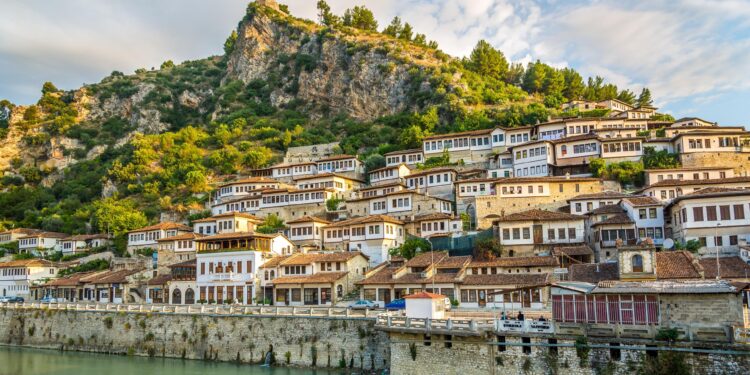Albania is poised for a pivotal electoral moment as its citizens gear up to participate in the general elections, where Prime Minister Edi Rama aims for an unprecedented fourth term. The ruling Socialist Party highlights its accomplishments in economic growth and infrastructure development; however, critics voice concerns regarding the sustainability of these achievements amid ongoing challenges related to corruption and political disunity. This election not only serves as a referendum on Rama’s leadership but also acts as a crucial indicator of Albania’s democratic resilience. The outcomes will significantly impact both the country’s immediate trajectory and its standing within Europe.
Edi Rama and the Evolving Political Landscape in Albania
As Edi Rama campaigns for re-election amidst changing voter expectations and rising political obstacles, this juncture marks an essential phase in Albania’s political journey. His management has been characterized by important reforms alongside increasing public discontent, particularly as economic conditions fluctuate coupled with critiques regarding public services. Key factors influencing voter sentiment include:
- Economic Worries: A considerable portion of the populace is concerned about job availability and escalating inflation rates.
- Corruption Challenges: Recent scandals have raised questions about governance clarity.
- Public Service Quality: Voters are prioritizing enhancements in healthcare and educational systems.
With election day approaching, opposition parties are capitalizing on these sentiments to garner support by highlighting unmet promises while advocating for transformative change. The narrative is further complicated by Albania’s aspirations for European Union membership‚ÄĒa goal that Rama champions as central to his vision for leadership. Critics contend that EU integration should prioritize not only political alignment but also tangible improvements in daily life for Albanian citizens.Consequently, the election results may reflect broader desires for reform beyond mere preferences regarding leadership.
| Main Issues | Citizen Concerns | |
|---|---|---|
| Economic Policy | Create Employment & Manage Inflation | |
| Tackling Corruption | Demanding Accountability & Transparency |
Key Factors and Campaign Strategies Shaping Albania’s Elections
The current electoral environment is shaped by various urgent issues resonating deeply with voters’ concerns. Amid ongoing economic challenges, Prime Minister Edi Rama‚Äôs administration faces scrutiny over its handling of inflation rates, unemployment figures, and overall economic strategies. Citizens express growing anxiety over living expenses alongside access to vital services.
In this context, EU integration remains a central theme within Rama’s campaign aimed at appealing to younger voters who seek greater stability through foreign investment opportunities. Voter perceptions are often influenced by ancient legacies from past administrations; many individuals assess their lived experiences against recent promises made.Political parties have developed targeted campaign strategies designed to effectively address these pressing issues:
The ruling Socialist Party underscores infrastructure improvements , along with economic reforms‚ÄĒshowcasing achievements such as new public works initiatives alongside enhanced social welfare programs aimed at job creation through foreign investments.
On the other hand, opposition groups emphasizetransparency measures while tackling corruption issues to actively engage disillusioned constituents.
Grassroots mobilization tactics play a crucial role here; numerous parties strategically utilize social media platforms targeting younger demographics more effectively than traditional outreach methods.As voting day approaches‚ÄĒcoalition-building dynamics could significantly sway outcomes amidst an increasingly fragmented political landscape.
International Observers Evaluate Integrity Within Albania’s Democratic Processes
As critical general elections draw near in Albania‚ÄĒglobal observers provide varied assessments concerning the integrity surrounding democratic processes within the nation.Prominent organizations like the European Union along with representatives from OSCE (Organization for Security Cooperation) have deployed teams tasked with monitoring different aspects across electoral landscapes.
Preliminary evaluations reveal several challenges possibly undermining public confidence regarding electoral results:
- The Freedom of Press: Concerns arise surrounding media independence coupled with potential biases affecting coverage quality across platforms.
- The Financing Mechanism: Ongoing calls demand clearer regulations governing campaign financing practices aimed at preventing corruption while ensuring equitable advantages among candidates involved.
- The Accessibility Factor:Acknowledgment exists around ensuring marginalized groups‚ÄĒincluding seniors or disabled individuals‚ÄĒexperience fair voting opportunities without barriers hindering participation levels during polls.
International representatives stress understanding how citizens perceive their own electoral processes while underscoring governmental accountability needs moving forward into future cycles‚ÄĒthey note meaningful progress achieved thus far toward strengthening democratic institutions must continue unabatedly going forward into upcoming years! To illustrate current trends observed throughout this cycle‚ÄĒthe following table summarizes key indicators reflecting overall integrity associated directly tied back towards upcoming elections:
| Status Indicator | Status | /thead<tbody<tr | Elections Legislation | Navigating Revisions | /tr<tr | The Independence Factor<td=Concerning | /tr<tr | Citizen Participation Rates<td=High Expected Rates | /tr<tr<Campaign Transparency Measures=<Insufficient Measures=< /tbody/tableLooking Forward: Future Prospects Following Election Outcomes!As polling stations close across various regions throughout Albania‚ÄĒall eyes remain focused on whether Prime Minister Edi Rama will secure yet another historic fourth term! Voter turnout combined alongside prevailing sentiments will prove instrumental when assessing if his governance‚ÄĒwhich centers around fostering economic initiatives paired harmoniously promoting European integration efforts resonates positively amongst constituents alike! ADVERTISEMENT |
|---|
















